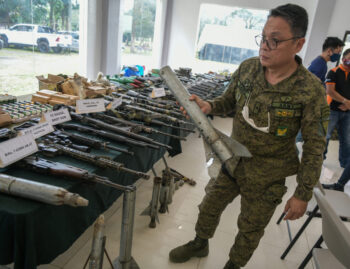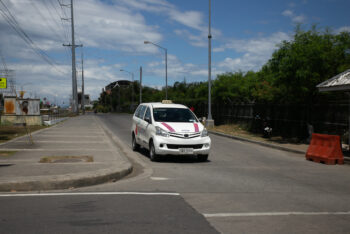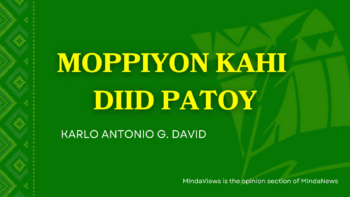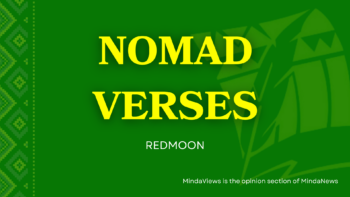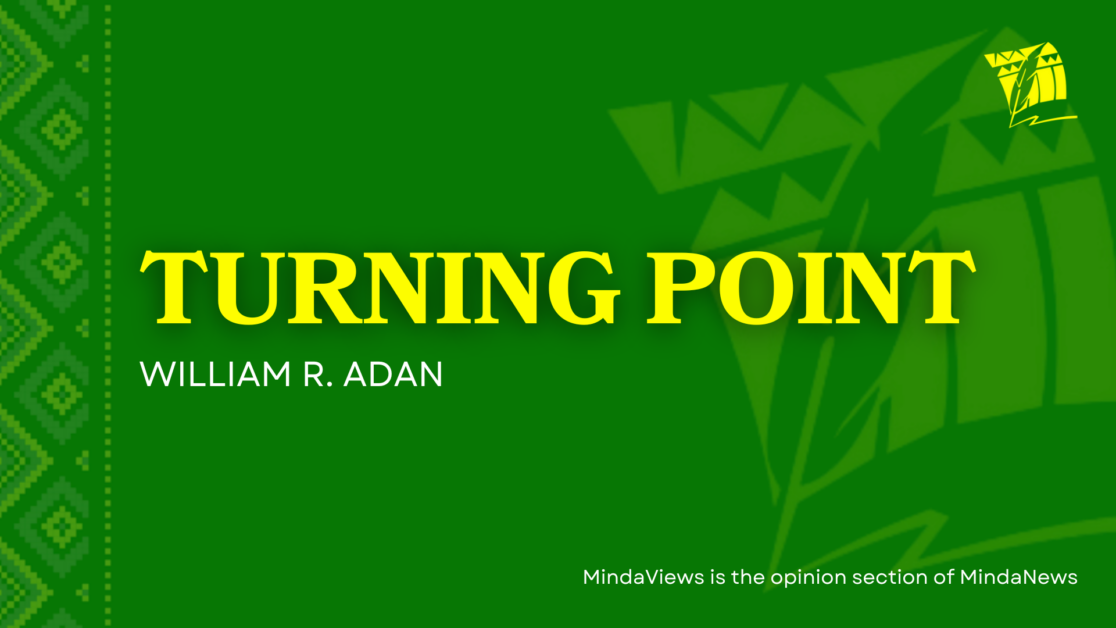
NAAWAN, Misamis Oriental (MindaNews / 03 February) – Last November when the House of Representatives passed a resolution urging the palace to cooperate with the International Criminal Court (ICC) on its probe of the war on drugs in the country, President Ferdinand Marcos Jr. declared to study the possibility of rejoining the Court. Yet, he stated that the ICC is a threat to Philippine sovereignty and he does not recognize its jurisdiction over the country.
It should be noted that on March 17, 2019, former president Rodrigo Duterte withdrew the membership of the Philippines from the Rome Statute that created the ICC, after the Court said it would investigate alleged crimes against humanity related to his vicious war on illegal drugs. Government estimates counted 6000 alleged drug offenders who perished in the campaign, while human rights watchers claimed that the number of victims was several times higher, mostly eliminated via extrajudicial killing by vigilantes encouraged no less by the former President.
The withdrawal was thought to mean the ICC would lose jurisdiction over crimes against humanity in the country. Legal pundits think otherwise, saying per policy of the Rome Statute, the Court continues to possess jurisdiction over crimes committed before the withdrawal of a member state takes effect.
Moreover, on 21 July 2020, the Supreme Court of the Philippines ruled that the government remains obliged to cooperate in criminal proceedings of the ICC even if it has withdrawn from the Rome Statute.
Notwithstanding the realities, if only to assuage the anxiety of his political allies over the ICC probe, Marcos reiterated that the ICC has no jurisdiction over alleged crimes committed in our land and would not therefore allow its entry into the country. Yet, this runs counter to his earlier announcement to study the possibility of rejoining the Rome Statute.
The ambivalence of Marcos on the issue sent jitters among those who would likely be charged before the ICC. So much so that stories circulated alleging that ICC personnel were already in the country in late 2023. For instance, former senator Antonio Trillanes IV cited an “inside information” that ICC investigators allegedly visited the country in December last year and were able to interview and complete the gathering of information on Duterte and other individuals involved in the drug war. Hence, the issuance of a warrant of arrest against Duterte and other respondents is just a matter of time.
Senator Bato de la Rosa, one of the primus offenders, appealed to Marcos to be ”man enough” to tell the truth, that is, whether the ICC is already in the country or not.
The appeal or challenge was unnecessary. On January 23, 2024, PBBM said that the International ICC may visit the Philippines, but the government will not cooperate in the international tribunal’s investigation into the country’s war on illegal drugs.
Marcos made the statement following reports that ICC investigators were able to gather information and evidence for a possible case of crimes against humanity against former president Duterte and other personalities linked to the drug war of the previous administration.
He reiterated the ICC has no jurisdiction over the country. Yet its personnel may come as ordinary persons.
Marcos said the government is keeping an eye on the ICC to make sure that it would “not come into contact with any agency of government.”
He added he has already instructed all government offices, including law enforcement agencies and local government units, to evade any queries of the ICC, in case it tries to contact them.
Whatever the premises and whatever the justifications, whether the ICC is welcome or unwelcome, the truth is crystal clear that Marcos would allow the ICC to conduct its business in the Philippines.
This unexpected turn of events naturally enraged and turned the Dutertes ballistic.
On Sunday evening, January 29, the former president accused Marcos of wanting to stay in power beyond the prescribed term limit through Charter change and claimed the President has been a “drug addict.” He called out Marcos for reneging on his promise on his possible ICC case
Sebastian Duterte, the incumbent mayor of Davao City, joined the fray, demanding for Marcos’ resignation for being lazy and without compassion, with no sense of gratitude, who has no qualms in putting his father in prison, the very person who moved for the burial of the remains of the dictator Marcos Sr. at the Libingan ng mga Bayani.
Meanwhile, Vice President Sara Duterte, who tried hard to avoid the trade of barbs between the two camps, suddenly found herself in the limelight, too, when from nowhere former Davao Senior Police Officer Arturo Lascañas accused her as the “pasimuno” (initiator) of Oplan Tokhang in Davao City during her stint as mayor in 2012, with then now senator Bato de la Rosa as her Chief of Police executing it.
Lascañas, who figured prominently as one of the key operators of the Davao Death Squad, claimed that some 3,000 suspected drug personalities were killed under Tokhang. Those killed were buried to avoid any trace of their disappearance. Dela Rosa adopted Tokhang as a national program to end the drug menace when he became Director General of the Philippine National Police.
The revelation on Sara was disclosed by Lascañas, when he faced the media (24 Oras report of Saleema Refran) following the end of the pre-trial investigation of the ICC, where he served as a witness, on the alleged crimes against humanity under the drug war of the Duterte regime.
The unholy alliance of the Marcoses and the Dutertes against the Filipino people has crumbled. They are now cutting each other’s throat.
There is, actually, no difference between these two political dynasties; their primary concern is to perpetuate themselves in power and grab all economic perks and opportunities while on top.
The Dutertes’ rendezvous with the ICC may end their fortune. But we have the misfortune of remaining under the impoverishing rule of the Marcos dynasty.
(MindaViews is the opinion section of MindaNews. William R. Adan, Ph.D., is retired professor and former chancellor of Mindanao State University at Naawan, Misamis Oriental, Philippines.)



